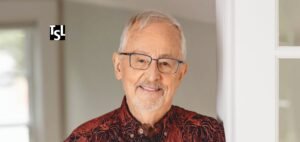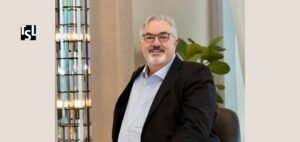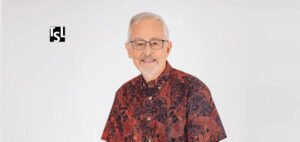In the ever-evolving domain of operations research, few individuals have contributed as profoundly and lastingly as Professor Richard Larson of the Massachusetts Institute of Technology (MIT). With a career defined by intellectual rigor, interdisciplinary integration, and public impact, Prof. Larson has become synonymous with the transformative power of analytical thinking. His work has not only advanced theoretical models but also translated them into impactful, real-world applications—ranging from urban planning and police patrol optimization to global educational initiatives.
Prof. Larson’s journey in operations research is deeply personal, driven by his early fascination with physics and his desire to bring scientific logic into the daily decisions and systems shaping public life. Influenced by real-world events and guided by eminent mentors, he carved a niche at the intersection of academic excellence and practical utility. From riding in patrol cars to understand law enforcement logistics to designing open-source educational tools for global classrooms, Prof. Larson has embodied the idea that the most powerful ideas are those that are both deeply grounded and widely applicable.
As a visionary leader, educator, and researcher, Prof. Larson’s contributions extend far beyond academic publications. His ability to inspire future generations of analysts, blend rigorous scholarship with real-world observation, and champion accessible, model-based thinking places him in a rare league of individuals whose legacies touch both intellect and impact.
Early Fascination with Analytical Science
Richard Larson’s journey into the world of operations research began with a profound love for physics—a subject he considered his favorite science. While biology never appealed to him in the same way, physics offered a structured lens through which he could understand the real world. In his words, operations research became the “physics of everyday life,” addressing seemingly mundane but complex situations—waiting in line, managing household tasks, optimizing traffic routes—through structured analytical models and algorithms like Dijkstra’s.
The formal introduction to the field came through Professor Alvin W. Drake, Larson’s advisor at MIT, who introduced him to the powerful discipline of operations research. This moment of discovery was a turning point that sparked a lifelong dedication to applying mathematical modeling to real-world problems. Influenced early on by personal experiences, including a crime that affected someone close to him, Prof. Larson found his academic and civic purpose intertwined. This led him to explore the field of policing and public safety, areas that would later define the early chapters of his career.
From Theory to Patrol Cars: A Real-World Research Approach
Richard Larson’s commitment to hands-on understanding set him apart from many of his contemporaries. Rather than confining his research to theoretical constructs, he partnered with the Boston Police Department and spent over 200 hours riding in patrol cars to observe real-life police operations. These first-hand experiences informed his doctoral research and eventually culminated in the landmark publication Urban Police Patrol Analysis, which earned the prestigious Lanchester Prize in 1972.
Larson’s immersion into fieldwork wasn’t merely an academic exercise—it marked the beginning of his approach to operations research as something inseparable from the real world. His time with law enforcement laid the foundation for his broader vision of public systems evaluation, revealing how data, algorithms, and human experience could converge to produce more effective civic systems.
This same research would eventually lead him to serve on the President’s Crime Commission, becoming the youngest member of its Science and Technology Task Force. His early accomplishments established him as a thought leader capable of connecting the mathematical with the practical—an ethos that would characterize the rest of his career.
Marrying Academia with Practical Execution
While many academics walk the tightrope between theory and application, Richard Larson bridged the two seamlessly. His founding of Public Systems Evaluation, Inc.—later evolving into the ENFORTH Corporation—was a pioneering move that allowed him and his students to actively apply classroom knowledge to field projects. Operating on Fridays away from campus, Larson’s work with ENFORTH served as a proving ground for real-time operations research in New York and beyond.
This endeavor did not compete with MIT’s mission; instead, it enriched it. Students brought back insights from real-life scenarios and turned them into master’s theses, deepening both their understanding and the academic community’s knowledge base. Through this work, Prof. Larson reaffirmed his belief that research must be integrated into the systems it seeks to improve—whether public transport, healthcare logistics, or law enforcement.
Pioneering Educational Innovation: The BLOSSOMS Initiative
In 2008, Prof. Larson extended his passion for education and innovation to a global scale by founding the MIT BLOSSOMS initiative—an acronym for Blended Learning Open Source Science or Math Studies. This platform was among the first open-source educational resources to gain international traction, offering freely accessible STEM video lessons to schools and teachers worldwide.
BLOSSOMS stood as an embodiment of Prof. Larson’s commitment to democratizing knowledge and enhancing public education using digital platforms. Today, the program remains widely used, with videos accessed daily on platforms such as YouTube. Larson acknowledges the tireless work of his BLOSSOMS team and credits their dedication for the platform’s global success. In doing so, he once again demonstrated that innovation thrives when anchored in purpose and shared through inclusive access.
Foundational Beliefs in Theoretical and Practical Unity
Prof. Larson has long challenged the notion that theoretical research and practical implementation are at odds. To him, the origins of operations research are steeped in necessity. He frequently cites historical milestones like A.K. Erlang’s queueing theory in 1919, developed to manage increasing call volumes in telecommunications, and the rise of Search Theory during World War II to track enemy submarines, as examples of theory born out of urgent real-world needs.
Larson mentions that most successful theoretical advancements are informed by real-life complexities. His body of work, both as a professor and practitioner, echoes this philosophy. Whether developing models or mentoring future researchers, he has continuously emphasized the importance of context, validation, and the iterative cycle between hypothesis and observation.
Remaining a Student of the Field
Despite his deep expertise, Prof. Larson remains intellectually humble, recognizing that the vast expansion of operations research has made it difficult for anyone to stay abreast of every development. Even before retirement, he focused his efforts on probabilistic modeling rather than optimization algorithms, underscoring his enduring fascination with the conceptual foundation of decision-making frameworks.
This self-awareness not only speaks to his intellectual honesty but also to his continued belief in lifelong learning. Even in retirement, he continues to reflect on modeling’s value, staying connected to the foundational elements that first inspired his career. For Larson, the joy has always been in the puzzle—crafting, testing, and refining models that explain and improve the systems we live within.
Honors and Accolades: Celebrating a Legacy
Of all his recognitions, Prof. Larson identifies receiving the Lanchester Prize as a formative career milestone. The prize validated his work in public systems analysis at a pivotal early moment. But another honor stands out above all—his induction into the National Academy of Engineering (NAE). For Prof. Larson, this is the highest professional achievement, symbolizing a career dedicated to engineering solutions that address society’s pressing needs.
His textbooks, including the widely cited Urban Operations Research, co-authored with Amedeo Odoni, have become essential reading in academic programs and are even being integrated into high school curricula. This speaks not only to the relevance of his ideas but to their accessibility and applicability across ages and disciplines.
Guiding the Next Generation of Thinkers
Prof. Larson’s advice to budding operations researchers is simple yet powerful: go to the field. From the first day of analysis, he urges researchers to visit the sites of study, engage with personnel, and immerse themselves in the actual environment of the problem. This direct experience provides crucial insights and helps refine models that otherwise risk being disconnected from reality.
Throughout his tenure at MIT and through ENFORTH, he instilled this principle in his students. Many of them went on to become leaders in the field, carrying forward the discipline’s original purpose—to provide informed, effective solutions to real-world challenges.
Championing Model-Based Thinking for Life
In 2023, Prof. Larson sought to extend his legacy beyond academia with the release of Model Thinking for Everyday Life: How to Make Smarter Decisions. Published by INFORMS, this book brings analytical tools into the public sphere, offering readers methods to enhance their daily decision-making.
From choosing insurance plans to optimizing family schedules, model-based thinking helps break down complexity and offer clarity. Prof. Larson’s appearances in media and even a Times Square showcase via Marquis Who’s Who highlight how far-reaching his message has become. His mission remains: empower individuals with tools to think clearly, choose wisely, and act effectively.
A Legacy of Logic, Leadership, and Learning
Professor Richard Larson’s career is a model in itself—a demonstration of how rigorous thought, public engagement, and educational innovation can coalesce into a lifelong contribution to society. From urban patrols to global classrooms, from award-winning books to high-impact mentorship, Larson has redefined what it means to be a scholar and a public servant.
By consistently advocating for the union of theory and practice, Prof. Larson has ensured that operations research remains not just a mathematical discipline but a societal force. As future generations adopt his teachings and emulate his example, his impact will continue to ripple outward—measured not just in citations or accolades, but in the smarter, more humane systems that result.
Read also : Reframing Knowledge: The Power of Transformative Education


